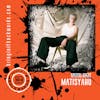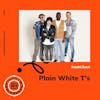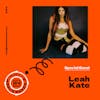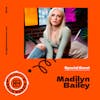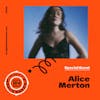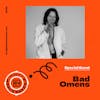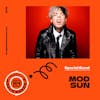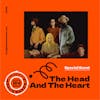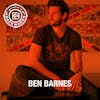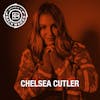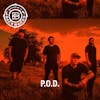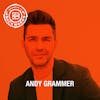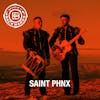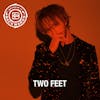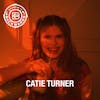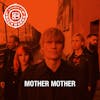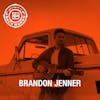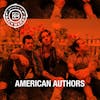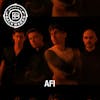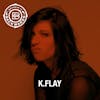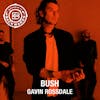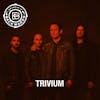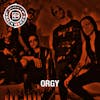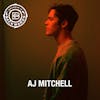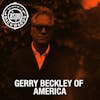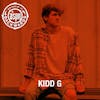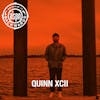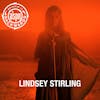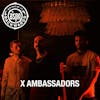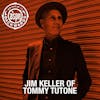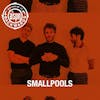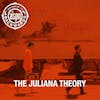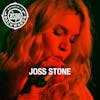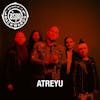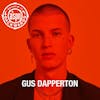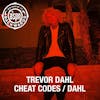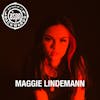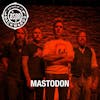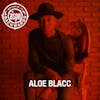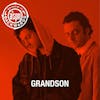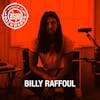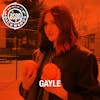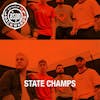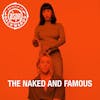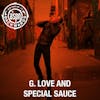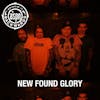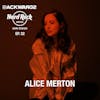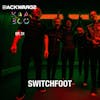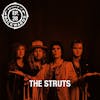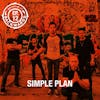Interview with Louis Knight
We had the pleasure of interviewing Louis Knight over Zoom video.
Singer/Songwriter Louis Knight is ready to heat up the charts with his new heartfelt single “Burn This All Down.” The single was released along with a must-watch fiery music video....
We had the pleasure of interviewing Louis Knight over Zoom video.
Singer/Songwriter Louis Knight is ready to heat up the charts with his new heartfelt single “Burn This All Down.” The single was released along with a must-watch fiery music video. “Burn This All Down” details Louis’ personal journey over the past couple of years, taking a step back from his love of music during the height of the pandemic due to the difficulty of the industry highs and lows. After feeling lost and consumed by fear, Louis was able to find his niche sound and rebuild himself from the ground up as the one-of-a-kind artist he was truly meant to be. The new song marks the first page of Louis’ next chapter of music: an emotionally charged 6-track EP to be released later this year.
The British-born, Philadelphia-raised, and currently LA-based music artist began his musical journey as a Top 7 finalist on Season 18 of ABC’s American Idol. After wowing the judges each week with his gut-wrenching vocals and lyrical storytelling capabilities, Louis was brought back as a Comeback Contestant for Season 19 where he made it to the Top 12. Upon leaving the show, Louis released his debut original single “Change” – which amassed over 1-Million streams across all music platforms.
His passion and talent led him to work with music industry icons including 6x Grammy-winning mix engineer Michael Brauer (Coldplay/John Mayer), as well as talented music producer Matt Weber. Having an eclectic range of influences including Lewis Capaldi, Niall Horan, James Arthur, Dean Lewis, and Tom Grennan; Louis brings a unique and authentic sound while writing music that speaks to the universal longings of hope and perseverance.
We want to hear from you! Please email Tera@BringinitBackwards.com.
www.BringinitBackwards.com
#podcast #interview #bringinbackpod #LouisKnight #BurnThisAllDown #AmericanIdol #Season18 #ABCAmericanIdol #Top7 #AI #NewMusic #zoom
Listen & Subscribe to BiB
https://www.bringinitbackwards.com/follow/
Follow our podcast on Instagram and Twitter!
https://www.facebook.com/groups/bringinbackpod
We'd love to see you join our BiB Facebook Group.
Hello! It is Adam. Welcome back to bringing it backwards. A podcast where both legendary and rising artists tell their own personal stories of how they achieve stardom. On this episode, we had a chance to hang out with Louie Knight over zoom video. You may recognize Louie from American idol. He was on season 18 of American idol or the one that happened in the midst of COVID. And then he came back and did a comeback episode on the following season, but we learned about how Louie got into music. He was born in the UK, moved to Philly when he was 10 years old. He talked about getting a piano around 14, and that's when he immediately found love with music and songwriting. 3 (2m 22s): He talked about releasing his record, small victories and how that eventually landed him on American idol. He told us about how he was trying to build a social media and he was took advice from somebody and he was commenting on different people's pose, which landed him in front of one of the producers from American idol. She then went onto his page, love what he was doing and asked him to, to do the show. He talked about performing his own song on American idol song called change, which he wrote about one of his friends taking his own life. We hear about his time on American idol, how it ended up going from the live shows. He was in LA when the world shuts down and he gets sent back home to Philly and he's mailed all this stuff. 3 (3m 4s): I phones and lighting, and he's got to get all this together to do his performances on American idol. We hear all about that. 4 (3m 10s): Mary redeemed, a $50,000 cash prize playing Chumba casino. One line, 5 (3m 15s): I was only playing for fun. So winning was a dream come true. 4 (3m 19s): Chumba casino was America's favorite free online social casino. You too could have a chance to win life changing cash prices. Absolutely. Anybody could be like Mary B like Mary log on to Chumba casino.com and play for free. Now, no purchase necessary void where prohibited by law 18 plus terms and conditions apply. See website for details. The voice of the proceeded commission was not the actual voice of the winter 3 (3m 41s): Returning to Los Angeles. The following season, where he performed another one of his original songs, and we hear all about his most recent release song called burn this all down. You can watch our interview with Louis on our Facebook page and YouTube channel at bringing it backwards. It would be awesome if you subscribe to our channel like us on Facebook and follow us on Instagram, Twitter, and tick-tock at bringing back pod. And if you're listening to this on Spotify, apple music, Google podcasts, it would be amazing if you follow us there as well, and hook us up with a five star review. 6 (4m 15s): We'd appreciate your support. If you follow and subscribe to our podcasts, wherever you listen to podcasts, 3 (4m 21s): We're bringing it backwards with Louie Knight. Hey, Louie has a gun. 7 (4m 26s): I'm good. Thanks. How are you? Thank you for having me. Of 3 (4m 29s): Course, man. Thanks for doing this. Appreciate it. 7 (4m 32s): Cool. Anytime. 3 (4m 33s): Sweet. I'm Adam and this podcast is about you and your journey and music. And we'll talk about the new music as well. 7 (4m 40s): Awesome. Yeah. Nice, nice to meet you. 3 (4m 43s): Nice to meet you as well. So I did read you're born. Where in the UK, when you moved to Philly and early age, or was that kind of the story? Tell me about that. Sorry. 7 (4m 54s): Yeah, no, no, no worries. I, yeah, so I kind of spent half my life growing up in the UK and then when I was about 10 or 11, I moved to Philadelphia and I've kind of been there ever since. I think, you know, it's kind of it's home now to me and until six months ago I recently moved to LA. 3 (5m 17s): Okay. Wow. So growing up, yeah. Growing up and where you were in Britain. 7 (5m 21s): Yeah. And I grew up in London and Brighton in England. Yeah. 3 (5m 27s): What was it like growing up there and like how different was it when you moved to Philly? 7 (5m 31s): It was definitely very different. I, I mean, it's, you know, I grew up surrounded by a massive family, you know, like Dozens of cousins that you're kind of just with every weekend. Like very, I've got a big family back, back home in England. And I mean, it was definitely kind of weird, but we had, we had moved around quite a bit in England. I'd moved to a couple of different schools. So I think I was ready for a new start when, when that move came, when the opportunity to move came about my, I was about 10, I think. And my dad had started a company in Philadelphia because he'd been laid off in England and he'd started a company in Philly and he was going two weeks for an entire year. 7 (6m 19s): He was going two weeks to Philly, two weeks back to Brighton. So it was kind of a lot. So then we went to visit Philly one, like the Easter of that year, I think it was maybe 2011 or something. And I kind of just convinced my mom was like, why don't we all just move here and kind of, you know, so dad doesn't have to be alone out here. And then like somehow one way or another, she kind of was convinced. And my whole family, we ended up moving over that summer and it was definitely an adjustment, but I feel like I really grew into my own skin. I mean, I guess we all do at that age, you know, turning into the teenage years. Like those are rough years, you know, but like middle school was not easy. 3 (7m 3s): Oh. So where my son is, he's in middle school now and I told him, I'm like, this is the worst, the worst years of your life. 7 (7m 11s): Actually it doesn't honestly, I mean, life is hard. Don't get me wrong. But middle-school, that's like, that's a hard period of time. 3 (7m 20s): Oh yeah. 7 (7m 21s): Well I hope 3 (7m 23s): And he's almost done with it, so we'll see. But yeah, it's brutal, man. It's brutal. 7 (7m 28s): It really is. 3 (7m 29s): Do you have any siblings or only child? 7 (7m 33s): I do. I have an older brother. Who's two years older than me max and then a younger sister. Daisy. Who's also two years younger than me. So I'm the middle of, 3 (7m 42s): Okay. So your whole family ended up uprooting to, to Philly. You were 10. You see your brother was what? Going into high school or almost high school. 7 (7m 51s): So he, it was hot way harder for him. You know, I went in it's like, we literally got to Philly and moved in like two days before the start of sixth grade, my brother was going into eighth grade. So it was kind of different for him, much harder because everyone had already established those friend groups. 3 (8m 9s): Right. 7 (8m 10s): Had those people feel like, yeah, 3 (8m 12s): He was kind of, 7 (8m 13s): I think he had a much harder time at first. I was more lucky in that, in that kind of way. 3 (8m 19s): Yeah. That you're coming in to probably middle school. And everyone's kind of coming from different areas or different places when, when it comes to middle school. But yeah, still, I mean, that's a big change going from a completely different country. 7 (8m 33s): It was, it really was. And I think, yeah, a lot of people are asking me to say Harry Potter, a lot of 3 (8m 40s): Man of course, 7 (8m 42s): A lot of that, but I, I enjoy the intent to be on. It was like I enjoyed the detention while it lasted. So 3 (8m 49s): It 7 (8m 49s): Was all good fun. It was all good fun. 3 (8m 51s): That's cool. When, how did you get into music, musical household at all? 7 (8m 56s): So my dad was in, in, in like multiple bands throughout the years, he had a band in England called the congre brothers, which him and like him and his best mates, they, they kind of played around pubs in England. And I, he had, I mean, he was, my dad was a drummer and kind of sang a bit, but never really like professionally, professionally. I mean, I'm not even necessarily professionally, you know, it's such a weird thing. What does that even mean? But, so I think like from a young age, my dad was always, you know, just like putting instruments in front of us and you know, my first I saw it on the drums, I was awful. 7 (9m 39s): I, I still I've just started to have like a sense of rhythm. So like that never panned out. And then, you know, I I've been singing. Like I was apparently, apparently I was humming like before I could even really talk and I've been as cliche as it sounds, I've been singing my whole life. It's just the thing I've always loved to do. And like naturally been drawn to. But I started writing music when my mom got me a piano for Christmas off of like some kind of old piano from Craigslist. Then she got for Christmas when I was 14. And I, I had tried to write when I was like seven and like, you know, I still have these little note pads, you know, there's like really many note pads. 7 (10m 23s): I like, I still have some of these lyrics. I tried to write when I was like seven, but it doesn't make any sense, you know? 3 (10m 28s): Yeah. I mean, to have the creative idea, it's a right at seven years old, like try to write lyrics to a song. And I mean, that's pretty impressive. 7 (10m 36s): Thank you. It was the most cheesy lines. It was like, you left me now. Like, it was like, I didn't even know what I was writing about, but it was like, you know, I was just, I've always been trying to write sad love songs Before I even knew anything about love. And like, thank you. I, I think like when that was, when I was 14 was when I really, you know, I, I, I, I tried to learn the piano before and I took like three lessons. I could never get into it. I'm too. I was too ADHD. And like, just couldn't really appreciate, you know, learning the music theory and kind of like appreciating that at that point. And when my mom got me the piano, I just learned like C G a F, which is like every, the coolest to every pop song ever made. 7 (11m 23s): And, and most of my songs just in different keys. And I had kind of just, that's kind of what I started on. And then I, and then I started writing to those melodies and wrote my, started really writing like the first songs when I was 14 and kind of just haven't stopped since. And it's been, it's all, I'm really good at like, I was never a good academic student. So it's kind of, this is, I like to think this is what I'm supposed to do with my life. W we'll we'll see. I mean, I definitely think so, but hopefully, you know, it keeps panning out. 3 (11m 59s): Sure. Wow. So you were in, in Philly then when you started playing piano, if you're a 14. Okay. And then you were writing songs pretty quickly after you started learning how to play. And then at that point, like, are you showing people your songs? Are you, is it kind of like, you're keeping these to yourself? 7 (12m 15s): I, at first I was keeping them to myself. I then, like, I put out my, like my first, first DP when I was like, I think like a sophomore in high school or something like that. And I've stripped that down from all streaming services. I mean, it was like the cheesiest thing and I, I like thought I needed to sing it, like singing an American accent at that time because that's, you know, that's what a lot of English artists do. You kind of like, you're like, where's the English accent. So I was singing in an American accent at first and I just realized that was not working for me. So. 3 (12m 52s): Okay. So you Trey, you like, we're trying. Cause I always thought like if, you know, people were just singing and they had a British accent or an accent, it just kind of didn't, you know, cut through. So you're like literally trying not to sing with a British accent. 7 (13m 7s): Like I was, cause I thought, I thought, you know, listening to, you know, one direction and other English artists, I like a lot of them sing in American accents. And I honestly don't know why. I don't know if it's just more, you know, more accessible, like, you know, more just like, just like it does better. I'm not sure, but you know, it wasn't until I started listening to ed Sheeran and I was like, why am I? Cause he he's like one of the, you know, one of the most notable artists to, from England who do sing in an English accent and 3 (13m 40s): The biggest artists on the planet. I mean, it's crazy. Like literally he is the, if you look up Spotify, like the number, like he's the number one artist like on, on Spotify. Isn't that crazy? 7 (13m 52s): I, I knew he was like years ago. Like last year I probably looked and that's the goal right there to have that little icon on my, 3 (14m 1s): My 7 (14m 2s): Number in like in the world. But I didn't really, I didn't realize he was number one now, 3 (14m 8s): Number one in the world. I think I I'm like I should just check right now, but I remember looking like, like two weeks ago. 7 (14m 16s): Oh, I mean, it's got to be there and that's, that's so wild. 3 (14m 21s): Yeah. Ah, how come? I can't find it now or it's not even showing I'm on his page, but he, yeah, but he I'm like 99% sure. He's number one in the world. Oh yeah. He is number one in the world. Ed Sheeran. 7 (14m 33s): Isn't I mean, imagine what that, like what 3 (14m 38s): That's crazy. I mean, yeah. I can't even fathom ATV is 84 million monthly listeners. 7 (14m 46s): That's unbelievably insane. Yeah. 3 (14m 51s): Okay. So, well he was a guy doing something that's going to end Sheridan tangent, but he was the one that was singing in the British accident. And you were kind of like, well, okay, well if he's doing it, I should try to do it. 7 (15m 1s): Yeah. I just kind of realized it didn't sound good, me like forcing out an American accent. So I, then, you know, I, I, then I released that AP in high school and then I've been, I was writing my, you know, all along and it was kind of, I just realized like, this is what I want to do. And I was really lucky to have like, I've have really supportive parents. And I mean, I don't even know what I'd be doing it, you know, if it wasn't for them, like, like helping me and believing in me. But I, they were supportive enough to let me not go to college. When, you know, all my counterparts were all going to like colleges and I took a year then to, to just write and record like my first debut really P and I did that. 7 (15m 52s): And then, you know, shortly afterwards I wrote them recorded and put that out and it started to get, you know, a little bit of traction, like, like pretty minimal, but you know, it was just, I was starting my career and then American idol reached out to me and then kind of just turned 3 (16m 9s): Into 7 (16m 10s): Him and into not a gap year anymore. 3 (16m 13s): I 7 (16m 13s): Still try not to go back to school. So. 3 (16m 17s): Wow. Okay. So that first EAP release where you is that that's when you're actually trying to sing in the American accent or did you decide not to do that? Even on that very, not small victories, but the one that you said scrubbed from the internet, 7 (16m 29s): The one I scrubbed from the internet was I was singing on an, like in an American accent on that one. 3 (16m 35s): That's the one 7 (16m 36s): That, that's the one that is long gone. 3 (16m 38s): Okay. And then you just decided like, I should try to push this with not doing that. And like, was there like a validating moment that someone was like, whoa, this sounds really good. Like, you know, what are you doing different than you're like, well, I'm not trying to say where could I, like, was there any of that 7 (16m 54s): Interesting. I don't, I don't remember. I think I just remember listening to it and I think maybe someone said, you know, that it kind of is cool if you don't like, maybe like, I think maybe like some friends maybe said you should just embrace it, but I honestly forget the exact moment. I think just listening back to that first DP, I was like, what am I doing? 3 (17m 16s): Okay. I was like, 7 (17m 17s): It didn't feel, it didn't feel authentic to me. So I think I just kind of gradually through, you know, posting covers on Instagram, you know, doing that whole thing and then writing, I just started trying it out and experimenting with it and seeing what it sounded like in an English accent and kind of, I just kind of began to really kind of just by doing it so much and doing open mics and things like that in Philly, I just kind of started to find, find my voice and in a sense, okay. 3 (17m 51s): Yeah, 7 (17m 52s): That sounds 3 (17m 52s): No. I mean, it takes time, right? To find, literally find your voice. I mean, I came from radio or I've done radio for, I did radio for a long, long time and just to become yourself, like be you. And like, that's always what people say, just be you. And it's like, that's like the hardest thing ever to find you and your voice and how you should sound instead of just trying to emulate or mimic other people that you look up to. 7 (18m 13s): Exactly. That's such, that must be really interesting too, is like, you know, like Ray doing radio because I mean, that's like every, you know, you'll live people that are listening to you. Like, like, 3 (18m 23s): Yeah, but it's weird. Cause you're just in a room and no one's around and you don't really, it's just like such a different pressure. I mean, you got to walk out on a stage you're on American idol, right. You're singing to millions of people and like a live television. That's just such a, like for me, like I, that would be so terrifying. At least nobody knew what I looked like. 7 (18m 42s): I, I couldn't do what you do either because I fumbled on my words way too often. 3 (18m 47s): Oh, well, yeah. It's again, it's all about, you know, repetition, but okay. So I'm curious, I want to talk about the American idol thing because it obviously is a big, big piece of your story, but so with small victories, you put that out and that's what eventually drew the attention of American idol. Like kind of tell me how that worked. 7 (19m 6s): So I was, I'm probably going to go into a ramble, hit, 3 (19m 11s): No, go for it. 7 (19m 13s): I was trying to grow my Instagram and I really, this is kind of something to me that is kind of really special because it kind of just is a reminder that, you know, if you're putting in the work, you know, I kind of like to think of it as like a trail of breadcrumbs kind of thing. Like if you, you know, if you're planting lots of just, just, if you're like putting in the work eventually, you know, some stones just randomly start to turn over. And so I had like met with my, one of my best friend's older brothers who was like, trying to do like, like I think he like a course, he didn't college was like social media analytics or something. And I met with him. 7 (19m 54s): I had like my, like parents, like he, like, he, like, he he's, over-aged like, like, you know, like my parents like bought him a bottle of like whiskey or something for like helping me out, you know? And I brought it over to him and I, we like, we sat down for an hour and he was kind of giving me tips on like, you know, trying to grow my engagement and grow my reach because at the time I had like, I dunno, 6,000 followers on Instagram from just doing like the follow follow, the 3 (20m 22s): Following fall. I 7 (20m 23s): Don't even like I was, I would just go to like Sean Mendez and click the people that like follow him and then just follow them to see if they would, you know, like my music. 3 (20m 33s): Yeah. You 7 (20m 35s): Are trying to do that. And then I basically one of the tips, this I'm like my great friend now told me was he said, go like find other like upcoming people, like aspiring singer songwriters comment on can engage on their posts and then their fans might, you know, engage back to you. So I was doing that and I comment, I don't even know the girl. I need to thank her one day. Like, I don't even know who she was. I commented on her page like, oh, I like this is really beautiful. You know, please check out my stuff. A costing producer for American idol was Shay Wilbur. Who's like a great friend of mine. Now. She was looking at this girl for America and then looked at my, so my comment randomly clicked. 7 (21m 18s): My profile was in, it was in interested like, and, and found my music on Spotify. And then it was like, DM me. And I thought it was like fake. I was like, right. 3 (21m 29s): I've got 7 (21m 30s): Some, some random person DM-ing me saying like, would I like to audition for American idol? And I was like, this can't be real. Like, that was a lot, like I showed my manager at the time and I was like, this is like fake. Right. And it was just, it was weird. It was, it was very strange. And I see it kind of is inspiring thinking about it because you never know that, you know, if you're putting in those steps to just grow and, you know, eventually somethings do just kind of happen, you know, when you're putting that work in there. So 3 (21m 59s): That's incredible. I've heard, I've heard the story of people getting DMD on, on about shows like that before, but I've also heard a lot of people, like if I just listened to podcasts about, you know, how to grow your engagement and like all these social media tactics, that's always been one that's kind of come up is, is the fact that you should go and find, you know, similar people or similar, you know, like for you aspiring songwriters and you're going in there, like, Hey, like check myself out. Like, do you feel like that was really working for you? I mean, aside from getting the gig with American idol, that obviously panned out, but like the rest of it was that was that working. I've just heard that before. And I've never actually talked to somebody that's tried to do that. 7 (22m 41s): Interesting yet. Honestly, it was, I mean, it's a very slow build. I mean, some, like, it was not, you know, it's weird. Like now I look at social media growth very differently because which is like, honestly unhealthy because I watched my Instagram account from, from, you know, 3 (23m 3s): Television exposure, 7 (23m 5s): Like, and to now national television, like seeing those numbers, it's kind of created a bit of an unhealthy, unhealthy thing. Cause now I'm like, it's not good enough, you know, but, but, but it was, it was a slow build then it was working like very slowly, you know, a couple like a couple followers a day. 3 (23m 24s): And that's cool. 7 (23m 25s): I mean, that's, that's growth like that's, which is really, really cool. It was, yeah. It's, it's, it's a slow build. I definitely all after everything started kicking off with American idol, I definitely relaxed on that front. I didn't do that as much. 3 (23m 41s): Oh, sure. Yeah. You probably didn't. It probably didn't have to. I mean, obviously you, what you want to focus mainly on the show. 7 (23m 47s): I kind of do anything else. Like the anxiety alone of like doing that was like, like it was very, you know, it was, I had to kind of dedicate a lot of, you know, most of my time to get, you know, preparing and stuff, so yeah, 3 (24m 1s): For sure. So, okay. So you get this DM and obviously you're you like, you know, this can't be real. Like what do I do? I interviewed somebody, I think it was Katie bell. She was on American idol. I think similar situation where she got 7 (24m 16s): Really familiar. 3 (24m 17s): I don't know what year it was, but she's same thing. But I, she said she got a DM from like, it was like user blah, blah, blah, blah. And there's like, no posts, like no, like profile picture, anything like it was just like, and it was like some account that ended up being through American idol, but it sounds like yours is like more legit. 7 (24m 34s): Yeah. Mine was caught. That's why I would've like, I probably 3 (24m 38s): Would've just 7 (24m 39s): Overlooked that and like, and yeah. Wow. I mean, good for her for following up with, I mean, what a missed opportunity that would have been like I, I remember, yeah, I basically got a DM and my manager kind of my manager at the time, my old manager kind of sussed it out and she happened to be from Philadelphia. Her dad was also a musician. And then I remember we, we chatted on the phone and then we ended up when she was in town next in Philly, visiting her family. I think it was, you know, for like for a Jewish holiday, we got coffee, we met at Starbucks and she's like the loveliest person come, come to flash-forward to like Hollywood week. 7 (25m 29s): Like she helped me very much when I was like losing my mind with the sleep deprivation and all that kind of stuff, but wow. But yeah, so that was, and I, I wasn't sure at first if I wanted to do the show, which sounds crazy now, but I was, you know, I had all my eggs in the basket of, you know, I'm going to start, like I was putting a band together. I was going to start gigging up and down the east coast hopefully, and had just put out this CP. And I was so worried about if that, if it was going to pigeonhole me as, you know, like a karaoke singer, 3 (26m 3s): Are they kind of have some people that they kind of get stuck with that American idol like stigma. Right? I mean, yeah. I could see that. 7 (26m 10s): It's super weird because it's such a double-edged sword because I mean, I, I mean, in reality, it's not because the exposure and everything is just amazing and the experience let alone, but it is that kind of weird. You have to think about that. And I was, but then I found out they were going to let me sing my original song, which was like, 3 (26m 28s): That's crazy. This is, 7 (26m 29s): This already was pretty much a once in a lifetime opportunity. And then this just got even bigger. Like this was an, it's an opportunity that I would have to be such an idiot to pass up on. And then, you know, they were letting me tell the of change, my song that I wrote about like suicide prevention and like going through the loss of one of my brother and I's friends. And yeah, it was just, it was such an amazing experience. And just overall, like, I mean, it's changed my life, so 3 (26m 57s): Sure. I mean, the fact that you, I mean, the song is incredible and I know it was about a very difficult topic and, but the fact that you went on TV and did a song of your own, like, talk about like being bold, because if your likelihood of advancing with the original song is so much like some smaller, cause if it's going up votes and people, a lot of it's song choice, I got to watch American idol. I mean, years ago, I remember this guy was really good. And then he did like in the middle of the show, halfway through, he did like a Ryan Adams song and I'm like, Ryan Adams is cool. And the song he did was cool, but 90% of America is going to be like, what the hell are you like, what song is that? 3 (27m 38s): It's like, wouldn't you pick a hit that? Like, I don't know. You know what I mean? Like, I feel like some of the time, and they are used to talk about this on the show is like, the judges would be like, that's not the right song choice because a lot of it has to do with that. But the fact that you're like, I'm just going to do an original, like whatever. 7 (27m 51s): So, so much of it is, you know what, it's weird because I never thought about it like that in the moment I was just like, this is all I know how to do. I'm not in college. This is what I'm trying to make my career. If this, you know, if I'm going to do American idol, if I'm going to go on this, like, it has to be like, it has to be like, I have to be able to do an original at some point, which I dunno if that sounds like I had some sort of privileged mentality, but I was just like, it was just like, I have to do I have, this is who I am. I need to, you know, go forward on my own. You know, like if it doesn't do well, I want that to be on my own merit. 7 (28m 34s): Not because not because you know, for any other reason of song choice or anything like, this is me, this is, you know, I had that pressure. Everyone was in college and I was trying to kind of prove my, like, you know, I had parents that like, kind of like, oh, you're doing music. Like, what did he get? And like, Well, it'd be back in like, you know, thinking like, what the heck is this kid doing? Like, why are his parents letting him do this? Right. You know, I kind of just, I kind of didn't even think about it. Like it, to me, it had to be like one of my songs. And that was the selling point. And like a friend, a friend of mine said, I'm a really close family friend who like, you know, moved to America with almost nothing too. 7 (29m 15s): And like is now like a film director for like the TV shows and stuff. She, she like babysat me when I was a kid. She got on the phone with me when I was in like, deciding if I was going to do idle or not. And she was like, sometimes you it's like rock climbing. You have to go sideways to go upwards. Which was like an interesting, like, 3 (29m 35s): It's, it's a great perspective. 7 (29m 37s): It's an interesting metaphor because that was like the deciding factor. And I was like, true. Nothing is a concrete set pathway. You don't know what doors are going to, you know, like sometimes you have to pivot to, in order to go further down, you know, like your career. So yeah. I just kind of realized I had to. And that was kind of that, 3 (29m 58s): Well, I think what separates you from people on the show is that you are a songwriter, right? I mean, people, if you can sing really well and your family is like, oh, you're a great singer. Like you should be on American net. Like, yeah, I should like, I'm going to go down. And I do, I kill it at karaoke night. And you know, I love doing covers on my YouTube channel. Like that's a totally different person that also does well at American idol. 7 (30m 22s): Yeah. I mean all the power, like, you know, that's, it's an amazing thing that people do that. I, but thank you. 3 (30m 28s): But like, that's like you coming from a totally different mindset is like, I'm a songwriter I'm here because you know, why not? Like it's a massive platform. You can get like real, you know, feedback. If people are going to care, they're going to care. If they're not, then obviously I know that people 7 (30m 46s): Go back to the chalkboard, you know? Right, 3 (30m 48s): Right, right. I mean, I thought it's bold. It was, it was a great, I mean, I, I think that's so awesome that you did that 7 (30m 56s): So much. I appreciate 3 (30m 57s): It. Yeah. So you do, I mean, obviously with the song and, and everything and you, you do it and you advance far, both times you came back on the show, the second, the next season, didn't you? 7 (31m 8s): So I 3 (31m 10s): Did it during COVID. I mean, sorry, 7 (31m 13s): I'm saying that was, I don't know how, when you get to Hollywood week, it's pretty insane. Like, it's pretty insane because you're just surrounded by the most talented people you've ever met in your entire life. And I kind of got very much like a bit of like imposter syndrome. I was like, what am I doing here? There are people that are singing acrobatics, like around me, you know, it's like, you know, you have the R and B thing is, and the people that just can do the most insane runs. And you're just like, I just forgot. I could even sing. So I honestly don't know how I kept going forward in the show. I was just really lucky. I was just trying to be me. I think, you know, there's so much pressure. 7 (31m 55s): And when you're on a TV show to think, you know, I need to try to be, well, I think the producers want me to be and things like that. And I dunno, I just, I realized like, I just need to try to be me as most, like, as best I can. And if it like doesn't, I don't know. Somehow I just, yeah. Somehow I just kept going forward. And I was so fortunate about that. And yeah, I got to the top seven, which we ended up going into the pandemic. So that was just wild and 3 (32m 25s): Yeah, it is, it goes from like what live stuffed to now you've got to produce what your house or something like that. 7 (32m 31s): Yeah. So it was all pre-taped up to that. Like we've got to the law, like we just got to LA to start rehearsing for the live shows. And Then like two weeks into being an LA state-by-state started shutting down. And then we didn't know if the season was going to be canceled because they sent us all home and they were like, we don't know what we're going to do right now. Like, we'll let you know in a couple of weeks. And they kind of made like two filler episodes for two weeks, I think. And then they kind of just told us, okay, we're sending you three. I-phones like a giant audio rig to like record you, like record your vocals. 7 (33m 13s): And, and it was insane. Like it, and then they sent us three ring lights. So we kind of basically became our own like producers. And we, I don't a lot about television production. 3 (33m 25s): You had three. I-phones what? You just set them like around you. Like, so you can kind of play, walk me through. 7 (33m 35s): I put a tiny little ring light right here. It was it, they were these gigantic ring lights, you know, like we were on zoom. Like we are right now. I would be standing on an ax. My old manager would be the I-phones would be in the ring lights. We'd be lining up shots, holding the computer up to what the phone camera was looking at. Like through the ring light to the producers, working out each angle on with the lighting department, they would send us like Phillips, like, like, 3 (34m 11s): Like 7 (34m 12s): Controllable, light bulb. Like they were like, okay, move that light in the corner there. And it was like in, it was just, they sent us like stuff for set design. Like they sent me cushions. They sent me cause like, you know, the first song I did was in my bedroom, you know, 3 (34m 28s): Like 7 (34m 29s): They said, like strip neon lights, like we had to set up all this stuff ourselves and then let alone, we had an audio rig. I don't even know what, like I'm pretty, I like to think I'm pretty well versed in like engineering sound engineering vernacular a little bit just through recording a book. I don't even know what this thing was. It was like an audio generator. It literally took sound from there, like broadcasting station that they were using for this was in like, I think my Kansas city was like the one place that was like the one broadcasting station at the time that had stayed open through the pandemic or something. 7 (35m 11s): So it had a line, it had a feed going from Kansas from wherever we were, you know, it was 21 of us, Like from all over the country, broadcasting feed going from wherever we were to Kansas city and then back to LA and like, we did it all through that. It was like, that was where, you know, that was the feed from the cameras. It was just all insane, very long hour. But you know, it got to, got to find the silver lining. We got to learn a lot about TV production and they found a way to, you know, keep the season going, which we didn't even know if they were going to be able to do that. 3 (35m 51s): That's cool. That's cool. I mean, that sounds crazy. I mean, you get to learn all of that, right. I mean, they're like, that's, doesn't surprise me, but I would have never guessed that you would have had to have like their lighting department on like zoom and like their producers to make sure that the angles look good. It makes sense. But it's one of those things, like I wouldn't have imagined that, that they took it that far, but they have to right. I mean, it's a major, it's a major show on major network. 7 (36m 17s): It was, it was really, I mean, I guess it was, it was, we're all feeling quite optimistic and just going with the flow at that point, because, you know, we were all in the abyss of the unknown. Sure. You know, like the whole world. And we would just, I think we were all just figuring out one step at a time and we were just grateful that they were, you know, finding a way to keep it going. I think they were the first reality TV show to come back on in the pandemic. So we kind of all felt like we were a part of this, you know, this groundbreaking cool thing, 3 (36m 52s): Pioneering, this little thing. That's cool. 7 (36m 54s): So yeah. 3 (36m 55s): Wow. Did you have to, like, I guess the producers would be on with you before you did your piece, right? Because they'd be making sure the angles all look good and everything. Like you couldn't just be in your room with like your bed on made and like, you know, laundry on the floor, like where, you 7 (37m 13s): Know, they 3 (37m 13s): Wouldn't, they wouldn't, they, they wouldn't let you do what they want. Like a trash. 7 (37m 18s): Exactly. Like, you know, it was like, what's in the background, what's in the 3 (37m 23s): Copyrighted stuff. 7 (37m 25s): Oh. I had like any photos I had up in my room that were like someone else's piece of art, we had to get in touch with them and clear 3 (37m 35s): It. 7 (37m 37s): We had to clear everything and it was so cool because that was this, this is really random, but it has this artist. Who's like, I mean, he's, he's kind of underground a little bit like his name's Dylan Owen, he's kind of like a rapper slash like spoken poet dude, who I had been really inspired by, in middle school. And like, he'd like helped me get through middle school, listening to his music. And I'd been to like one show, met him at like a basement show in like north Philadelphia, just like sketch. But I love north Philly, but it's a little sketch sometimes. And this dude, like who I'd been a big fan of growing up, I like, I had a signed poster of him in the background that said, keep writing 3 (38m 24s): With 7 (38m 24s): Rap. I then like had to, I got to reach out to him and talk to him and tell him, Hey, I'm using this. Like, I think this might be in the background shot. It didn't end up being in the shop. But like I got to, like, I, you know, I had to reach out to all these people and then get him to like clear it and stuff, which was really cool because I mean, my, like my, my like, like Brighton football club in England, like my, like my football team, they, yeah. I had to clear I'd a football shirt, assigned football shirt in the background as well, which I, to clear. And then I ended up, you know, from like the oh G like one of my favorite ever players. They sent me when I got to the live shows, they sent me a video from two of the players, like saying, I think it was three players, like wishing me good luck and saying, you know, Brighton supporting you. 7 (39m 13s): It was, and that all came from, they found out about it because the sh like we had to get clearance from them because my shit, like my Brighton shirt was in the background. It was just, 3 (39m 23s): That's so rad. Wow. 7 (39m 25s): It was really special. Yeah. 3 (39m 26s): I knew that. I knew television had to do that. Like certain shows, like if they go on looking like a reality type shows, if they go somewhere and they're filming, like at someone's house or whatever, they have to be like, a lot of the time the production company will bring art that they already had cleared and hang it, you know, on the wall. So they don't have to like go through those processes. There's like, they know that this painting that, you know, has been cleared for five years. So they, they can just bring it along with them. 7 (39m 53s): It's wild. Like they like random, like family, childhood photos. They were like, who took this? And it would be like a distant relative who we haven't spoken to in years or something like that. And we would have to reach out to them and get them to sign a release. Oh. It was like everything, every single possible thing. There was so many released homes. 3 (40m 18s): They're like, should I just rip all this crap off my wall? 7 (40m 20s): Yeah. I was like, yeah, it was literally, it definitely got to that point. It's like at some point, so, 3 (40m 25s): Oh man, that's crazy. But then you ended up going, what back for the next season after that, is that what I saw? 7 (40m 33s): So they invited me technically. I think once you get to the live shows, you're not allowed to go back on the show ever again. 3 (40m 42s): Oh, really? 7 (40m 43s): I think 3 (40m 44s): I figured somebody has done that. Maybe not. I don't 7 (40m 47s): Guess, I don't know if it's live shows or like, if it's the top 10, you're not ever allowed back on the show after you get to the top 10, but they that's usually that policy, but because we didn't get that live experience on the, on the live stage, like on the idle stage, 3 (41m 3s): They let you come back thing. 7 (41m 5s): They did a comeback episode where they invited 10 of us back to perform. And, you know, I wasn't sure if I was going to do it at first because I was, you know, I spent the last year of the pandemic, you know, trying to kind of continue to redefine me as not Louie from American idol is like, you know, as an artist and push with that. And they came back with the opportunity again, to do an original song. And I was like, oh my goodness, this is coming a second time round. This one's unity. So I was, I went in and I was so grateful. I, I did my, I guess like my second to last single that I put out over a year ago now. And I sang that song. 7 (41m 46s): They let me, and yeah, it was, I didn't like make it through that comeback episode, but I didn't really, I just kind of just being able to go, go back and do my original song again was just, it was amazing. Like, I, I kind of wasn't planning on, you know, going forward. I just kind of wanted that. 3 (42m 5s): Yeah. And get the platform and get the opportunity to play the song. I, why not? Right. Let me do my own song. 7 (42m 12s): And I mean, I got to do, you know, we've became, you all become a family when you're on that show, you're going through the craziest schedule and highs and lows together, which is the contestants, but then also the crew and like the producers. So it was just really special to all be back together again, because you really, you know, you form really strong relationships with all these people. You're like practically, you know, like living with the crew, but you're living with your co contestants and you're with the crew day in, day out. So it was so nice to be, you know, be able to, you know, give it, give everyone a big hug and kind of be like, you know, I've missed you. You know? Cause we, we all just split ways halfway, you know, when we were getting ready for the live shows and we never, we spent every day on zoom with each other, but we didn't know. 7 (42m 60s): We didn't actually get to really have a proper goodbye. We didn't really get to see anyone again. So that was really nice to be able to see everyone. 3 (43m 7s): That's awesome. That is so awesome. And I want it, well now I want to talk to you about your new song. Bring this all down. I love the video. I want to make one comment on the video you did for it. You said it started like this and the gear in your room and you're singing. Yeah. You have this just a random, you have a, a lamp in the background and it looks like the big Pixar lamp. It's like a gray lamp. 7 (43m 31s): Oh, true. 3 (43m 33s): I have that lamp. Yeah. 7 (43m 40s): Where it's from. I know 3 (43m 42s): It's from Ikea. I 7 (43m 43s): Thought, okay. I thought it was like, yeah, that's 3 (43m 46s): Funny. Cause I, we recently moved to, to, to Nashville and it's in my son's room and I was like, that's so random. That was one random. 7 (43m 58s): That's why you should just tell him like, that's you, that's your lamp. 3 (44m 1s): Can you see this? He's in this video, this guy borrowed your lamp. 7 (44m 5s): I did borrow it. That's wild. I haven't even, I didn't even realize it was in the shop. It's on the side. 3 (44m 14s): That's all, there is one that's 7 (44m 15s): Wild. That's sick, but I'm glad you pulled up. 3 (44m 19s): I was like, I have that lamp. 7 (44m 22s): That's so's Ikea. Like, can we get a sponsorship going between the two? 3 (44m 26s): Exactly. Exactly. Let's get them on the line. Well, tell me about the song and then I'll and I love that video that you made too. So I want to talk to you about that. 7 (44m 35s): The song is about, you know, through the pandemic, it was just kind of weird, you know, I'd spent so much time on American idol talking about, you know, suicide prevention and stuff like that. And it was, I think it, you know, I had so many people messaging me off to the audition ed and they were like, you know, I'm struggling. And it, it was, I think, you know, it was like I'm feeling suicidal. And so like hundreds and maybe even thousands of messages, you know, people reaching out to me, which was lovely and 3 (45m 8s): What a weight I'm sure too. Right. 7 (45m 10s): It kind of, it kind of did become kind of a wait for me. And I didn't really, yeah. It just kind of became a little bit draining, just constantly talking about it and stuff, which I think, you know, I've figured better ways to kind of talk about it now and I'm more used to it, but at the time it was just this whirlwind and, you know, I then started, you know, having, you know, going through the show, I ended up, you know, I was dealing with my own anxiety and then going into the pandemic, we all kind of went into this thing called, you know, postnatal depression as we call it. And sure. You know, I went through a period of time during the pandemic where I really kind of lost myself for a while and I was kind of, you know, going through a bit of a depression and dealing with anxiety. 7 (45m 58s): And I, you know, I stopped writing for quite a while because I had this weird kind of mentality that every song I had to write had to be this massive emotional release, like change was, you know, writing change was helped me process all those feelings. I mean, not all of them, but a lot of the fun about my friend's passing. And I kind of, you know, I kind of just assumed that was my best, biggest song so far they had done like, you know, the most like, like PR like PR performed the best at that point. And I kind of just thought every song I had to write had to be that level of, you know, a emotional release and just, it had to be like that. 7 (46m 43s): So every time I sat down to write, I was just setting myself up for failure. I honestly like it's crazy. It sounds like I felt washed up at like 20, you know, it was like really weird and not healthy. And I hated everything I wrote. I didn't think it was good enough. And I just kind of got in this really bit weird Headspace where I felt like I was losing my relationship with songwriting. And I felt, you know, very out of touch with myself, going through, you know, depression for the first time properly. And I that's what this song is about this song I wrote this song about, well, I wrote this song about a couple of weeks into moving to LA with one of my good friends, Francisco, Martin, and then later on with help from another, you know, another idol alarm pike. 7 (47m 29s): But we, we would just hanging out at Francisco's house, you know, like kicking around. 3 (47m 33s): That's such a cool guy. I've interviewed him a couple of times for this podcast and he's a great dude. 7 (47m 37s): Oh, that's sick. I, I didn't, I didn't know that. Yeah, he's a great guy. And we, he just started playing the guitar randomly one night, playing some chords and I just started like just randomly freestyling, just, and all these pent up feelings of everything I'd been dealing with that I hadn't been getting out, you know, cause song writings, you know, always been that outlet for me. And all of a sudden I was having a hard time, you know, getting anything out, it all, just all these pent up feelings of kind of just dealing with what I was going through and the frustration of trying to find myself again, just all just came out and then the song came to life. And that's what it's about. It's about me trying to find myself when I was feeling lost with my career and trying to navigate the music industry and you know, just my own mental health and just, you know, the, you know, the battle that comes with that, that was kind of, that's what the song's about 3 (48m 33s): In the, in the video that we were talking about with, with a lamp you're in, was that, is that your bedroom and like, was that vocal cut in your bedroom like that? 7 (48m 41s): So the vocal wasn't cut in my bedroom, the vocal, I cut the vocal in Francisco's bedroom. 3 (48m 49s): What was that? His bedroom or is that your bedroom? The one in the video, 7 (48m 52s): The video was, I went back to my house. I went back to Philadelphia to film video because my long time I was trying to convince my, you know, my, my really great friend, Danny Govert, who's a filmmaker and director. He, he filmed my first ever music video from that first DP that I scrubbed. It was, it was my first ever music video. He had just quit his marketing job to start trying to become a filmmaker flash forward. Now, you know, we both have careers and he's doing amazing stuff and I've been trying to, you know, see if I could get him to do the video for me. 7 (49m 34s): And like, like we'll do it with me. And it was, he eventually, you know, he was like, yeah, you know, I'd love to, I really love the song. And it was so cool to be able to collaborate with him again. I mean, he filmed my, just kiss me music video, which is another, I think, a single off of my small victories EAP. So he's someone I've worked with over the last couple of years. And it was really special to be able to go back to Philly and work with him. And we filmed that in my dining room, in my parents' house in Philly. And yeah, the video was, I mean, we kind of knew that had to be fire in it. Somehow the song name is a giver. We were like, okay, how do we do this without burning a house down? 7 (50m 17s): How, how, like how, like, how do we do this safely? How do we do this without a hundred grand budget? 3 (50m 25s): Right. 7 (50m 25s): Like having like an onsite department and you know, all this kind of stuff. And we found a vineyard in, in PA like a, it's a winery, which is, you know, really, really beautiful place. And they let us use that field, like one of their open fields. And we, we thought, you know, the biggest metaphor could be, I didn't know if it was cheesy at the time, but you know, what, what if we burn a piano is, is, is, I don't know if I'm using this tone correctly, but it's SAC religious has that felt, you know, it's like, this is like the thing that I love, why am I like burning, burning? 3 (51m 1s): It 7 (51m 2s): Felt like a sin to be like learning this instrument that is like beautiful. But, you know, I found one on Facebook marketplace and I thought, you know, muse, this is about my, you know, struggle with finding myself, my relationship with songwriting. It makes the most sense to, you know, what if we bought a piano and that was kind of, we just kind of rolled with that idea of kind of me just being like frustrated and like, you know, drag this piano into a field and just lights it on fire. And it was it as always working with Danny, it turned out really, really well. 7 (51m 42s): He's just so, so bloody good at what he does. So that was really special to work with him. And then, yeah, it was really fun to come home to do that too. 3 (51m 52s): Yeah. Yeah. That's rad. The video's awesome, man. And you have a, what a whole EAP come out or a record a little bit later this year. 7 (51m 59s): I do. So I, I have the second single of my upcoming EAP coming out in, in about a month from now. And I think I've just like, just got the final mix for that today. I just sent off the final mix notes like an hour ago. So I'm really excited about that. And then about a month after that probably is going to be so in about like two months, the EPA is going to be coming out and yeah, it feels like the most autistic kind of experimental authentic to me, music like, like the most authentic music I've made so far and the most kind of experimental in terms of pushing my boundaries with production and things like that. 7 (52m 46s): While also keeping, you know, keeping the core of it, you know, organic, because I think that's my goal is to, I mean, it's all subjective, but my goal is to try to make timeless music that people are going to want to listen to. And 30 years from now, or, you know, songs that stand the test of time. You know, that's always something that I've been really, you know, those are the songs that I've always been drawn to the most, the ones that feel really real. And that's what my goal is. So I kind of production wise. I, you know, I write on the piano, I write on the guitar in my head, the core of any song has to really, for the most part be organic. 7 (53m 27s): And then, you know, I can kind of dress it around with some, you know, electronic elements and things like that, you know, whatever serves the song the best, but I think if it can be on the piano, right. Or like, you know, just one instrument and you can play it. And it sounds good still, that kind of shows that, you know, you you're onto a good song. So that's kind of where most of the production is, but it's also, you know, I've pushed a lot of boundaries in kind of experimenting too. So 3 (53m 51s): When you said that, you know, you weren't able to, you didn't feel like you could really like read a song you're kind of in like this writer's block before you wrote burn it all down. And like, once you wrote that song with Francisco, like, did it kind of open up the flood gates to continue to write, like how, like, from birth this all down where you like, okay, we got that one out. Like now my, you know, I kind of cleared that, that block and did everything else kind of come pretty quickly after that? 7 (54m 21s): It did. I, you know, some of the songs I'd already written, like, I mean, I think like I wrote within the like year a little bit, but it was like, some of the songs are old songs from the, like on this new AP. And then, and then, I mean, most of them are new that I've written in the last six months. 3 (54m 40s): Okay. 7 (54m 42s): But, but yeah, it definitely opened the flood gates more. It kind of helped me process that whole kind of, you know, mental block thing that I was kinda going through, but it kind of just made me also realize that I'm going to have different emotional attachments to different songs and that's okay. You know, I realized like I had to redefine my relationship with songwriting. His intro is like, where does that may sound? You know, it had always been this therapy for me. And I had to realize that sometimes it's not always going to be like that. And that's okay. You know, this is, I'm trying to make this my profession. I'm gonna, you know, some songs are gonna help me emotionally and have a more emotional impact on people than others. 7 (55m 23s): And that's okay. As long as I'm writing, you know, I'm not going to be in love with everything I write and that's okay. As long as I keep doing it. And it kinda just helped me realize that. And just the, I need to just always be writing, you know, that's when I'm my happiest and you know, that it's okay. That sometimes there are going to be times where I feel like I can't, it's like, you know, there are going to be times where I have writer's block where I, you know, don't like things that I'm writing, but as long as I just stay the course and keep working on it, I'll throw myself into some songwriting sessions, you know, to get inspired by working with like friends of mine. I think, you know, I'm going to be okay, hopefully. So I think that's a weird psychological thing that I'm sure a lot of writers feel is, you know, what if I wake up one day and I can't write a song again, or I can't write, you know, for an author, you know, w what if I can't write one day and it's, you know, cause it's that weird thing that's just in here, that's like in your brain, that's this inspiration that comes and, you know, it's, yeah, it's a weird thing, but I think I'm going to be, I'm going to be writing for the rest of my life. 7 (56m 29s): So I know, I 3 (56m 32s): Know. 7 (56m 33s): So yeah, that's kinda what it made me realize. Sorry, I'm rambling. 3 (56m 37s): No, no, no. I love that. And I appreciate your time. Thank you so much for doing this, Louie. I have one 7 (56m 41s): More. I appreciate it. 3 (56m 43s): Yeah. I have one more quick question. I want to know if you have any advice for aspiring artists. 7 (56m 48s): Yes. I think, you know, just be yourself, like really just try to find who you are. I mean, I'm, you know, we're all constantly trying to figure ourselves out and, and find ourselves and that always evolves, but just be, you try to be as genuine as you can be and just, just write what you feel and what, what inspires you. And, you know, don't be discouraged because the world that we live in now with tick talk and labels and things like that, it does not come easy. And, you know, it's, we all kind of think, oh, a viral. 7 (57m 31s): We have to go viral and stuff like that. And it's just, no, it's a slow build. You know, there've been so many days wrong. Like, you know, can I really do this? Can I make this a career? You know, I'm never going to give up, but there, you know, it's very easy to be down on yourself. Sometimes when things aren't moving, as, you know, as quickly as you hope them to. And you know, it feels like you're just kind of, you know, the first six months I wasn't the first couple of months I was in LA before I found new management up until recently, you know, I felt part of my tongue, like Thomas speech. I don't know how you guys all on swearing on this podcast. 3 (58m 4s): You can swear as you do whatever you want. 7 (58m 6s): I felt like I was just eating shit. Felt like, you know, as a struggling artist and just, just don't give up because anything is possible. You know, I was just, you know, making tick talks, not, you know, annoyed at my engagement, you know, it's very, it can be very disheartening at the moment within the current world of social media and that instant gratification, but just stay the course believe in yourself. And anything is possible.
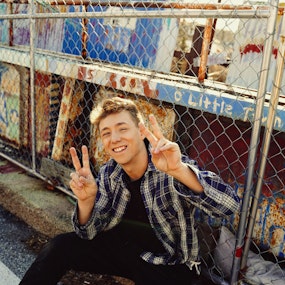
Louis Knight
Singer/Songwriter
Singer/Songwriter Louis Knight is ready to heat up the charts with his new heartfelt single “Burn This All Down.” The single will be released on April 28th, along with a must-watch fiery music video. “Burn This All Down” details Louis’ personal journey over the past couple of years, taking a step back from his love of music during the height of the pandemic due to the difficulty of the industry highs and lows. After feeling lost and consumed by fear, Louis was able to find his niche sound and rebuild himself from the ground up as the one-of-a-kind artist he was truly meant to be. The new song marks the first page of Louis’ next chapter of music: an emotionally charged 6-track EP to be released later this year.
The British-born, Philadelphia-raised, and currently LA-based music artist began his musical journey as a Top 7 finalist on Season 18 of ABC’s American Idol. After wowing the judges each week with his gut-wrenching vocals and lyrical storytelling capabilities, Louis was brought back as a Comeback Contestant for Season 19 where he made it to the Top 12. Upon leaving the show, Louis released his debut original single “Change” – which amassed over 1-Million streams across all music platforms.
His passion and talent led him to work with music industry icons including 6x Grammy-winning mix engineer Michael Brauer (Coldplay/John Mayer), as well as talented music producer Matt Weber. Having an eclectic range of influences including Lewis Capaldi, Niall Horan, James Arthur, Dean Lewis, and Tom Grennan; Louis brings a unique and authentic sound while writi… Read More
Featured Episodes
Here are some great episodes to start with. Or, check out episodes by genre.























